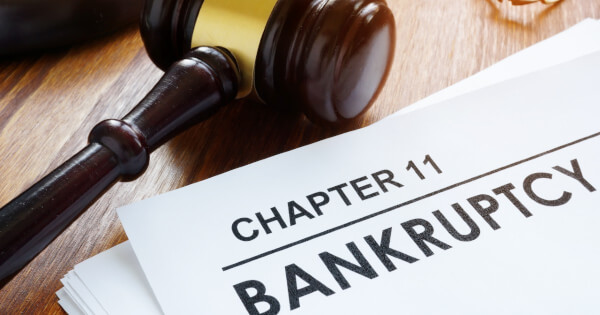
Source: blockchain.news
The bankruptcy of FTX Derivatives Exchange, the once crypto giant valued at around $32 billion, has served as a benchmark for many to view and participate in the industry with extreme caution.

Last week, FTX still looked normal despite revelations about balance sheet inconsistencies at its sister trading firm Alameda Research.
The FTX Derivatives Exchange’s ride to bankruptcy prepared no one, and as such, caught many off guard. While we are still in the early stages of proceedings, we are bound to see the ripple effect of these downturns over time.
FTX held a very pivotal position in the digital currency ecosystem, emerging as the lender of last resort to struggling businesses throughout the course of the crypto winter and as an investor. FTX has investments in more than 200 companies, all of which were listed in its bankruptcy filing.
While FTX’s collapse turned out to be tremendously shocking, the fact that we saw some major players like Celsius Network, Voyager Digital, Three Arrows Capital, and Terraform Labs go under over the summer must have given attentive observers a hint that nothing is impossible in this space.
FTX and the Broad-Based Heartbreak
One major difference in the way FTX’s demise was shaped compared to a number of other bankrupt companies is perhaps what is breaking many people’s hearts right now. Despite promising the spirit of centralization, FTX got its hands on user funds in an unethical way that it used to finance unproductive trading calls.
In the details we’ve seen so far, former FTX CEO Sam Bankman-Fried transferred up to $4 billion worth of user deposits to Alameda Research to prop up the company in the face of failed intervention by Voyager Digital and others. investments.
“FTX now joins the infamous club of centralized crypto entities that broke this cycle because they took enormous liberties not only with their client funds but also with ethics, integrity, and the very ideals of crypto. Hopefully, both the industry as a whole and individual cryptocurrency users will be able to learn and grow from this experience,” Anto Paroian, CEO and CEO of cryptocurrency hedge fund ARK36, said in an emailed statement. to Blockchain.News.
The learning that Anto was referring to may be necessary after the disappearance of FTX, since thousands of investors will be affected. In particular, we can agree that FTX will not be the only scapegoat for its collapse, a fact that will surely be revealed in due course.
Exchanges struggle to rebuild trust
The FTX crash has pushed several cryptocurrency trading platforms to the limit. Starting with Binance, many teams are now publishing their booking details in an attempt to win back customer trust across the board.
This position aligns with Anton’s recommendation that “users should consider every exchange potentially insolvent unless proven otherwise through proof of reserves.”
The Proof of Reserve (POR) published so far has shown Binance to be the healthiest exchange, but keen observers have begun to find fault with the PoR of some crypto companies. One of them is Crypto.com, whose on-chain data shows that the funds were deposited shortly before you posted your reservation.
Industry leaders, including Binance CEO Changpeng “CZ” Zhao, have indirectly advised how users should be cautious.
Acts like this are very antagonistic to the trust that exchanges are trying to build, and a reflection of the mistrust in Crypto.com has caused a massive drop in the price of Cronos (CRO), the native currency of the exchange. CRO fell by 17.86% to $0.06472, corresponding to 48.49% over the 7-day period thereafter.
The industry is at a pivotal moment as investors will reevaluate their short-term and long-term goals. Many may even stay away from the market for a while until normalcy, a very relative word in this sense, is restored to the market.
By the time the FTX contagion has fully manifested itself, and the worst of this crypto winter is finally over, only exchanges that have given investors reason to continually trust will likely remain in business.
The place of regulation
Regulators have been wading into the FTX saga, with lawmakers in several crypto-active countries calling for stricter scrutiny of the industry.
Many regulators were rocked by the collapse of Terra (LUNA), and South Korean lawmakers are still up to their necks in investigations into founder Do Kwon, who is still on the run. The FTX bankruptcy only reiterates the position of these watchdogs over time that the industry is highly speculative and requires proper supervision.
Gary Gensler, chairman of the United States Securities and Exchange Commission (SEC), noted that the industry does not comply with existing laws, and more compliance is likely to emerge in the future.
With many already affected by bankruptcies in the cryptocurrency industry so far this year, the SEC and other regulators will no doubt step in to prevent further losses soon.
Image Source: Shutterstock
Read More at blockchain.news